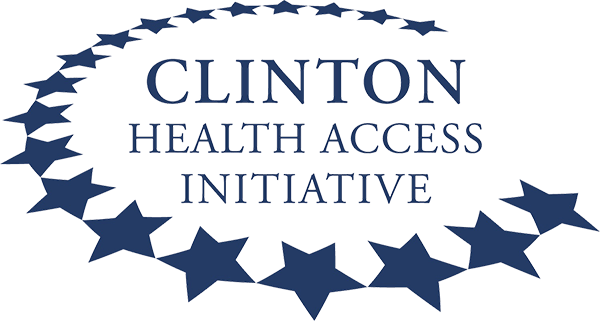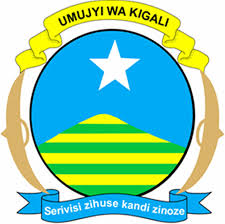Technical Advisor, Data Engineer – CLINTON HEALTH ACCESS INITIAL- RWANDA (CHAI)
Location: Kigali | Deadline: 10 October 2025
CHAI Rwanda
VACANCY ANNOUNCEMENT
TITLE: Technical Advisor, Data Engineer
Program: Health Systems Strengthening, Digital Health
Job Location: Kigali, Rwanda
Type: Full-Time Paid
Start date: Immediate
Overview
The Clinton Health Access Initiative, Inc. (CHAI) is a global health organization committed to saving lives and reducing the burden of disease in low-and middle-income countries while strengthening the capabilities of governments and the private sector in those countries to create and sustain high-quality health systems that can succeed without our assistance. For more information, please visit: http://www.clintonhealthaccess.org
The Government of Rwanda (GoR) strives to achieve Universal Health Coverage (UHC) by enabling equitable access to quality health services for the population as outlined in the Fourth Health Sector Strategic Plan (HSSP IV). This commitment has been made against a backdrop of rising health care costs and uncertainty around the future availability of donor funding and calls for improved health sector sustainability. Acknowledging this, the Government aims to employ effective, equitable, efficient, and sustainable health care financing and systems strengthening, putting an emphasis on primary health care as the cornerstone of a strong and sustainable health system.
CHAI Rwanda’s Health System Strengthening (HSS) programs work on a day-to-day basis with Government leadership in the Ministry of Health (MoH) and the Rwanda Social Security Board (RSSB). The goal of those programs is to support the Government to accelerate progress towards UHC by ensuring the sustainable delivery of quality, essential health services. This includes work to design and implement national Primary Health Care (PHC) reforms from health center level down to community health, to increase health workforce availability, to prioritize and sustainably finance essential services, and to support improved management, financing, and delivery of quality primary health care.
Position overview
CHAI currently seeks a Technical Advisor, data engineer to work with the Ministry of Health (MOH) National Health Intelligence Center to help improve the design, building, and maintenance of systems to collect, store, and analyze large sets of structured and unstructured data. The role involves working with data pipelines, databases, and big data tools to ensure that data is accessible, reliable, and optimized for use by data scientists, analysts, and other stakeholders. S/He will be seconded to the National Health Intelligence Center (NHIC) and will report in parallel to CHAI, Program Manager, Digital Health for specific CHAI supported initiatives.
The Technical Advisor, Data Engineer will provide need-based technical assistance during the review and implementation of a new data analytics architecture at MOH/NHIC. This effort is a cornerstone to MOH’s goal to disrupt how data is managed and used, including big data, to inform important policy and operational decisions at all levels of implementation.
The TA, Data engineer will help design and implement the framework for improved data architecture, and governance and build capacity within the MOH and the Health Intelligence Center (NHIC). In addition, the incumbent will work closely with the digital team at MOH to incorporate and translate data needs into system requirements.
Job Description:
The key functions and deliverables of this role will include:
- Data Pipeline Development & Maintenance:
- Design, develop, and maintain scalable and reliable data pipelines for ingesting, processing, and storing large volumes of data.
- Build ETL (Extract, Transform, Load) processes to ensure data flows smoothly from source systems to data storage solutions.
- Database Management & Optimization:
- Work with various database technologies (SQL, NoSQL, columnar, etc.) to store and query data effectively.
- Optimize database performance for efficiency and scalability.
- Manage and maintain large-scale distributed data systems, such as Hadoop, Spark, and cloud-based platforms (AWS, GCP, Azure).
- Data Integration & Transformation:
- Integrate data from different sources, such as internal databases, external APIs, and third-party services.
- Develop data transformation scripts to ensure data quality, consistency, and accuracy.
- Collaboration with Data Scientists & Analysts:
- Work closely with data scientists, data analysts within the National Health Intelligence Center, and business stakeholders to understand data needs and provide clean, usable datasets.
- Ensure that data is structured and made available for analysis, reporting, and modeling.
- Data Security & Compliance:
- Implement data governance, security, and privacy protocols to ensure compliance with regulatory standards (e.g., GDPR, CCPA).
- Ensure the security of sensitive data throughout the pipeline.
- Performance Monitoring & Troubleshooting:
- Monitor the performance of data systems and troubleshoot issues as they arise.
- Optimize data workflows to reduce latency and ensure the availability of real-time or batch data.
- Continuous Improvement & Documentation:
- Stay up to date with emerging technologies and industry best practices for data engineering.
- Document data pipelines, infrastructure, and processes to ensure transparency and ease of maintenance.
Platform Infrastructure Design & Implementation
- Design, build, and maintain scalable, highly available platform infrastructure using cloud-native technologies and best practices.
- Implement Infrastructure as Code (IaC) solutions using tools like Terraform and Ansible to ensure consistent, repeatable deployments.
GitOps Workflow Management
- Develop and maintain GitOps workflows using ArgoCD, or similar tools for declarative application and infrastructure deployment.
- Implement Git-based configuration management strategies with proper branching, pull request workflows, and automated code review processes.
Kubernetes Cluster Administration
- Manage Kubernetes clusters across multiple environments (development, staging, production) including setup, configuration, scaling, and maintenance.
- Implement advanced Kubernetes features such as operators, custom resources, RBAC, network policies, and service mesh integration.
CI/CD Pipeline Engineering
- Design and implement robust CI/CD pipelines using GitHub Actions, GitLab CI, Jenkins, or similar platforms with pipeline-as-code approaches.
- Integrate automated testing, security scanning, artifact management, and deployment strategies including blue-green deployments and canary releases.
- Cloud Infrastructure & Networking
- Architect and manage AWS cloud infrastructure including compute, storage, networking, and security services (EC2, ECR, IAM).
- Configure advanced networking solutions including load balancers, service discovery, DNS management, and implement zero-trust security architectures.
Automation & Configuration Management
- Develop complex Ansible playbooks, roles, and collections for configuration management, application deployment, and infrastructure automation.
- Integrate automation tools with CI/CD pipelines and orchestration platforms to streamline operational processes.
Monitoring, Security & Compliance
- Implement comprehensive monitoring and observability solutions using Prometheus, Grafana, ELK stack, and distributed tracing tools.
- Ensure platform security through proper access controls, certificate management, vulnerability scanning, and compliance with organizational security policies.
Additional responsibilities
- Data Quality Management: Recommend tools for integration within the data infrastructure to ensure the quality, accuracy, and integrity of data used for health-related decision-making.
- Staying Current: Develop a training program and resources for the data teams you support to keep abreast of the latest advancements in data science and public health informatics to continuously improve data architecture within the Ministry.
- Stakeholder engagement – Engage with the stakeholders across the health sector, including government agencies, non-governmental organizations, and international partners, to facilitate data sharing and collaborative analytics.
- Build a data Catalog and a Data Dictionary for effective data management.
- Adopt and apply organization-wide data quality frameworks and standards.
- Support specialized capabilities for Predictive and Prescriptive analytics, including making use of advanced analytics tools.
- Perform any other task as maybe assigned by the program manager.
Preferred qualifications:
- MSc’s degree in Computer Science, Information Systems, Engineering, or a related field (or equivalent experience).
Experience:
- Proven experience in software or data engineering, with 6 years of building data systems and pipelines
- Familiar with concepts of data modeling and dimensional modeling
- Proficiency in SQL and experience with relational databases such as PostgreSQL.
- Hands-on experience with ETL tools (e.g., Apache NiFi, Talend, Airflow).
- Experience with cloud platforms like AWS, Google Cloud, or Azure.
- Experience with big data frameworks like Hadoop, Apache Spark, Kafka, and others.
- Strong SQL skills and knowledge of relational and non-relational databases (e.g., MySQL, PostgreSQL, MongoDB).
- Expertise in GitOps, Kubernetes, infrastructure automation (Ansible, Terraform, Puppet/Chef), security and monitoring, and scalable platform architecture for multi-environment deployments.
- Familiarity with data warehousing solutions (e.g., Snowflake, Redshift, BigQuery).
- Strong problem-solving skills and attention to detail related to an on-premises data environment.
- Ability to collaborate effectively with cross-functional teams.
- Strong communication skills, both written and verbal.
- Attention to detail and a focus on data quality
Application procedure
Interested candidates should email a letter of interest (maximum 1 page) outlining how their background meets the requirements outlined above; CV (maximum 3 pages); and the names of three
referencesthrough chairwandarecruiting@clintonhealthaccess.orgwith “Technical Advisor, Data Engineer” in the
subject line. The deadline for applications is Friday October 10th, 2025. Only shortlisted candidates will be contacted.
In compliance with the data protection law of Rwanda and by submitting your application and CV, you explicitly consent to the collection, processing, and storage of your personal data by Clinton Health Access Initiative for the sole purpose of managing and conducting the recruitment process for the position you have applied for.






